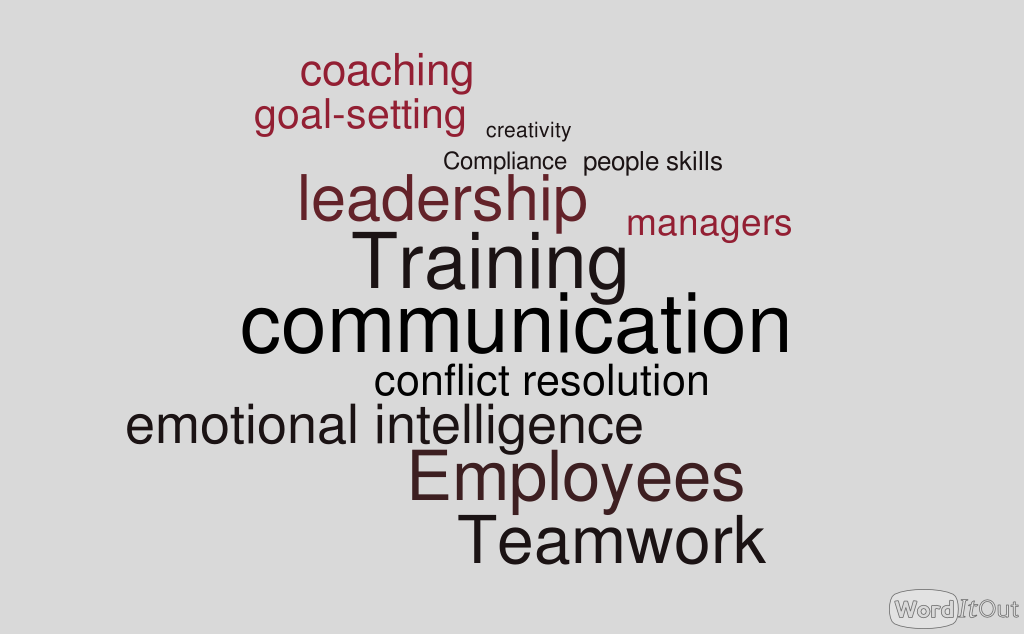Are You Setting Your Managers up to Fail?
Bill is one of your best employees. He has been with your company for five years; he is conscientious and dedicated. He is always there when he is scheduled and is never late. Bill is very skilled at his job, and customers often ask for him by name. It seems only natural that when a management position comes open in his department, you should consider him for the job.
A few weeks after Bill is promoted, your company misses an important deadline, and Bill’s department is largely at fault. Soon, you begin to hear complaints about Bill’s interpersonal skills with his direct reports. Employees say that he is inconsistent in applying time off policies and sometimes takes out his frustration on his assistant, who happens to be a person of color. One of Bill’s employees turns in his resignation and the individual Bill hires to replace him is not a good fit. You begin to realize that Bill is not working out in this position and that you might need to let him go. How could such a good employee turn out to be such a bad manager?
This scenario describes what commonly happens in companies when they fail to provide leadership and management training. Just because someone is a great employee doesn’t mean he or she will be a great manager. Let me say that again! Just because someone is a great employee doesn’t mean he or she will be a great manager. Leadership and management require specific skills, technical and non-technical, and without them, a leader or manager cannot be successful.
Before I go any further, let me say that leadership CAN be learned! Sure, there are people for whom leadership skills come very easily and seem natural. Even those individuals can and should hone their skills. In fact, one mark of a good leader is to always be learning how to be a better leader. I also want to mention that leadership and management, although often used interchangeably, are not necessarily one and the same. Management involves controlling processes and ensuring that the work gets done. Leadership involves influencing and motivating others to enable them to complete the work successfully. Leaders develop relationships, foster camaraderie and celebrate wins. Although many articles have been written about leadership vs. management, I believe that both aspects are necessary in business.
To avoid a scenario similar to the one I have described at the beginning, companies must provide crucial leadership and management training. It’s not enough to just give someone a title and a pay raise. Following are some areas where companies should invest time and money in training.
Non-technical skills
Technical skills are the set of abilities and knowledge needed to perform the job (i.e., performing mathematical equations, operating machinery, interviewing or writing). Although technical skills are absolutely necessary, non-technical skills are the personal attributes that enable a person to interact and work effectively with others. These skills are more difficult to define and test for, and are often, unfortunately, called soft skills. I say “unfortunately” because labeling them as “soft” gives the false impression that these skills are less important. Nothing could be further from the truth! These skills are the secret sauce that can make the difference between success and failure. Examples of these are critical thinking, decision-making, goal-setting, creativity and flexibility.
People skills
Since managers are typically building and leading a team, people skills are of utmost importance. Managers need to be able to hire top performers, interact well with others, develop relationships, and hold them accountable for results. This involves skill in communication (oral, written, non-verbal), interviewing, coaching, providing feedback, teamwork, delegation, conflict resolution and collaboration.
Emotional intelligence/Mental health
A survey conducted for CareerBuilder shows that 71% of employers value EQ (emotional quotient) over IQ (intelligence quotient). This is especially true of managers, who must be constantly aware of their own emotions and be able to self-regulate. They also need to be aware of the emotions of others, practice empathy, and be able to manage relationships well. Part of this is watching out for their team members’ mental health, recognizing the signs of stress and burnout, and being able to point them to the proper resources for help.
Legal compliance
Managers have the ability to inadvertently expose their employers to high levels of risk when they are not properly trained in legal employment issues. Basic human resource knowledge is not just for the HR department. Discrimination and harassment can occur during the interview/hiring process, when an employee resigns or is terminated, or any time in between. It is imperative that managers are trained on how to recognize and avoid such behavior in themselves and in others. The cost of training in these areas is offset many times by avoiding lawsuits.
Transition from employee to manager
Making the big leap from employee to manager can be difficult. No longer can a person be “buddies” with the rest of the team because now they are the “boss.” Training the new manager on how to take on this new role in a confident manner without being domineering or condescending is important. There may be other employees who are jealous or who doubt the new manager’s abilities. The new manager must learn to build trust and develop new relationships with former co-workers.
In summary, training your managers can increase employee morale and engagement, boost productivity and keep your company out of legal hot water. There are many avenues for training: technology, classroom, seminars, one-on-one – but whatever you choose, make sure it is meaningful and that you are not just “checking the box” for compliance. The workplace is constantly changing, and keeping leaders and managers up-to-date on these skills is paramount.







